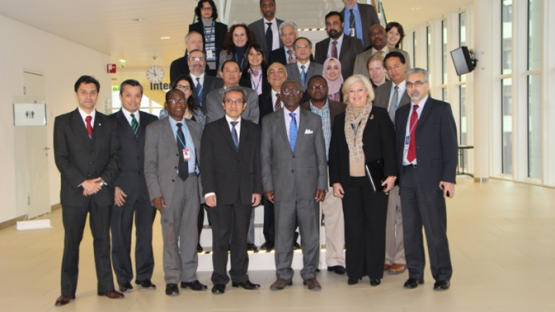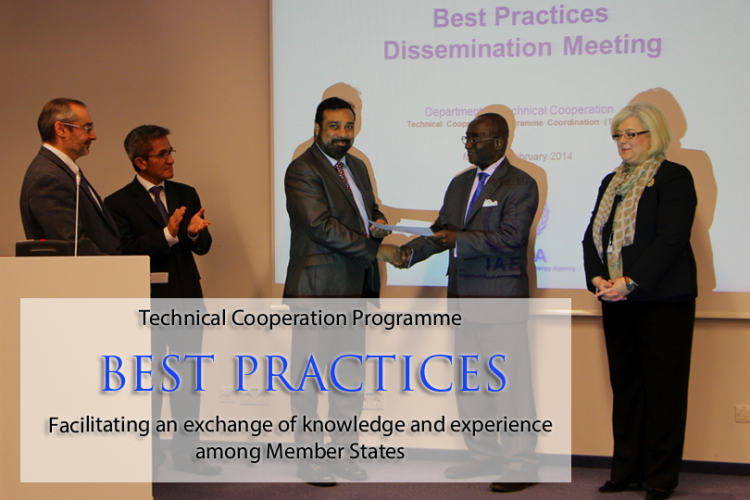Each year, the IAEA's Department of Technical Cooperation collects and shares best practices in TC programme management, with the aim of supporting information sharing, continuous learning, innovation and networking.
An IAEA technical cooperation best practice is a tested, real-life example of a policy, strategy or process that improves the performance of a TC project, leading to the effective and efficient achievement of a project objective. A TC best practice must be replicable and/or adaptable in various contexts - it must be possible for other participants in the TC programme to apply the best practice successfully in their own national programme or projects. The documentation of best practices in the design and implementation of the TC programme is central to managing the knowledge and experience of TC programme stakeholders.
Submissions are now sought for the 2015 best practice collection. Best practices are submitted through a survey questionnaire, available here. The best practice submission should describe how an issue or problem has been addressed, how effective the approach was, and what lessons were learned. The submission should identify key success factors, and should also indicate who could benefit from the best practice proposal.
Best practices can be presented for every stage of the TC programme, from preparation of a national programme or an individual project design through to project implementation and the measurement of impact. The categories for submission are as follows:
- Country Programme Framework / Regional Profile Process
- Programme Cycle Management
- Logical Framework Methodology
- Coordination arrangements
- Regional and interregional cooperation
- Partnership
- Project results
A best practice can focus on any of the following TC quality criteria: Relevance; Ownership; Sustainability; Effectiveness; and Efficiency.
Following an assessment, the final selected best practices are shared with interested stakeholders during a two-day dissemination meeting, in which the best practice authors present their experiences and elaborate further on their best practice. Best practices are also published online to increase knowledge sharing. Former best practices include introducing new drip irrigation technology to improve tea production by small scale farmers in the United Republic of Tanzania, or encouraging local community involvement in TC rural water resource assessment projects.
View the technical cooperation best practices photo essay here



